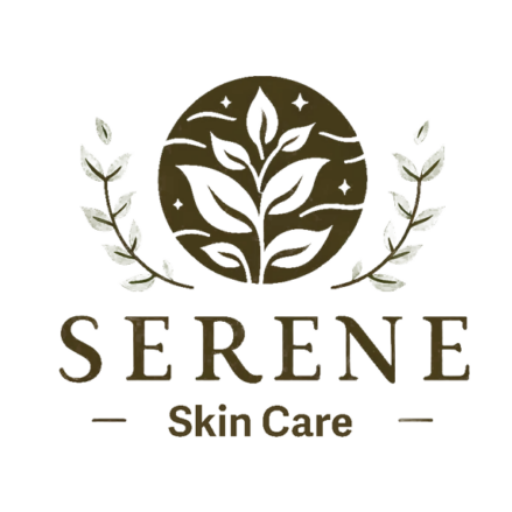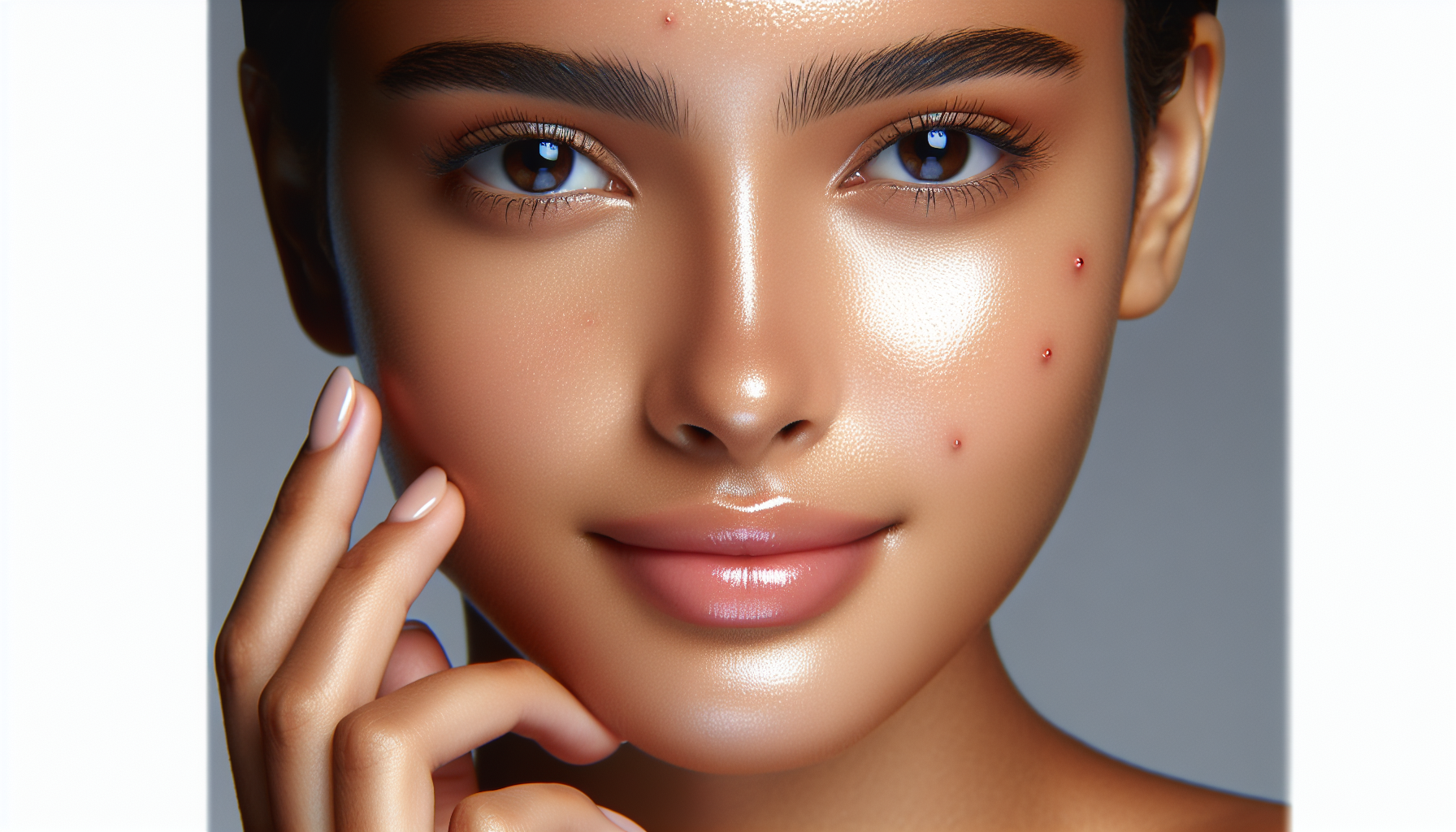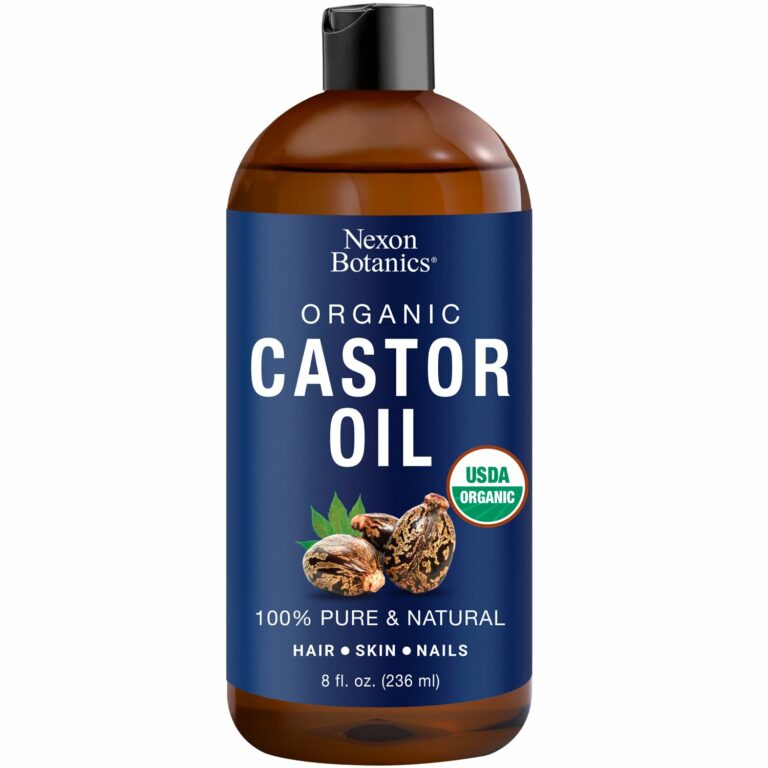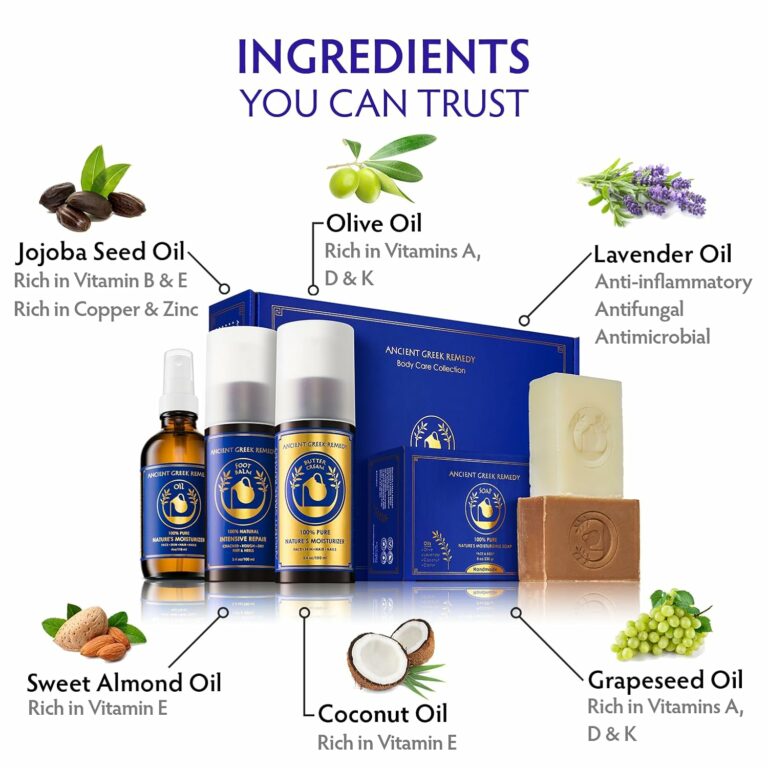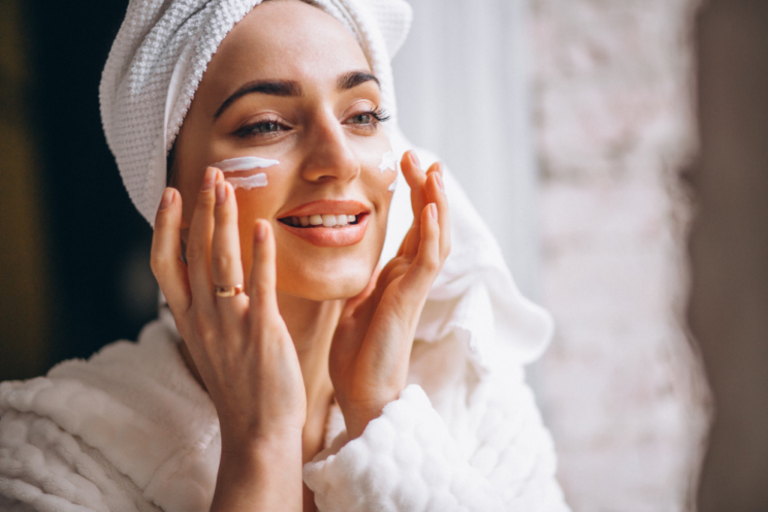Looking to achieve clear, healthy skin despite your acne-prone complexion? Look no further than the Ultimate Acne-Prone Skin Care Guide! In this comprehensive series of skin care guides, you will find all the tips, tricks, and expert advice you need to effectively manage and treat acne. Whether you’re a teen struggling with hormonal breakouts or an adult dealing with persistent blemishes, this guide is your go-to resource for achieving the flawless complexion you’ve always desired. Say goodbye to those pesky pimples and hello to a renewed sense of confidence!
Understanding Acne-Prone Skin
Acne is a common skin condition that affects many people, and understanding why it occurs can help in finding the right solution. Acne is primarily caused by the overproduction of oil in the skin, known as sebum. This excess oil, combined with dead skin cells and bacteria, can clog the pores, leading to inflammation and the formation of acne.
Causes of Acne
There are several factors that contribute to the development of acne-prone skin. Hormonal changes, such as those that occur during puberty, pregnancy, or menstrual cycles, can trigger the production of sebum and lead to breakouts. Genetics also play a role, as some individuals are more prone to acne due to their family history. Additionally, certain medications, stress, and even dietary factors can contribute to acne.
Types of Acne
There are different types of acne that can appear on the skin. The most common types include whiteheads, blackheads, papules, pustules, nodules, and cysts. Whiteheads and blackheads occur when the pores are partially blocked by oil and dead skin cells. Papules and pustules are small red bumps with or without pus, while nodules and cysts are deeper, more painful, and often require medical attention.
Common Misconceptions about Acne
There are several misconceptions surrounding acne-prone skin. One common myth is that acne is caused by poor hygiene. While keeping the skin clean is important, acne is primarily caused by internal factors such as genetics and hormones. Another misconception is that popping or squeezing pimples can help them heal faster, when in reality, this can worsen inflammation and lead to scarring or infection. It is important to debunk these myths and seek accurate information to effectively manage acne.
Creating a Daily Skin Care Routine
Establishing a daily skin care routine is crucial for managing acne-prone skin. A proper routine can help regulate oil production, remove impurities, and keep the skin hydrated. Here are the essential steps to include in your routine:
Cleansing
Cleansing is the foundation of any skin care routine. Use a gentle cleanser specifically formulated for acne-prone skin to remove excess oil, dirt, and bacteria. Avoid harsh cleansers that can strip the skin of its natural moisture, as this can lead to increased oil production. It is recommended to cleanse the skin twice a day, in the morning and evening, to maintain cleanliness and prevent clogged pores.
Toning
Toning is an optional but beneficial step in a skincare routine. A toner helps to balance the skin’s pH, tighten pores, and remove any remaining impurities after cleansing. Look for toners that contain ingredients like witch hazel or salicylic acid, which can help control oil production and breakouts. Apply the toner using a cotton pad and gently swipe it across the face.
Moisturizing
Contrary to popular belief, even acne-prone skin needs moisturizing. Opt for oil-free, non-comedogenic moisturizers that are specifically designed for acne-prone skin. These moisturizers provide hydration without clogging the pores or exacerbating acne. Applying moisturizer after cleansing and toning helps to replenish the skin’s moisture barrier and prevent excessive dryness.
Choosing the Right Products
When it comes to acne-prone skin, selecting the right products is essential. Here are some tips to consider:
Non-Comedogenic Products
Non-comedogenic products are formulated to not clog the pores, making them ideal for acne-prone skin. Look for this term on product labels as it indicates that the product is less likely to cause breakouts. Non-comedogenic products are designed to allow the skin to breathe and prevent pore-clogging, which can exacerbate acne.
Ingredients to Avoid
Certain ingredients can aggravate acne-prone skin and should be avoided. These include comedogenic ingredients such as coconut oil, cocoa butter, and lanolin. Additionally, fragrances and artificial colors can cause irritation and inflammation, making them unsuitable for acne-prone skin. Always read the ingredient list carefully and steer clear of any potential irritants.
Recommended Ingredients for Acne-Prone Skin
On the other hand, there are specific ingredients that can help manage and prevent acne breakouts. Look for products containing ingredients like salicylic acid, benzoyl peroxide, tea tree oil, niacinamide, and retinoids. These ingredients have antimicrobial properties, help to exfoliate the skin, and regulate oil production. Incorporating products with these ingredients into your routine can greatly improve acne-prone skin.
Effective Cleansing Techniques
Proper cleansing techniques are crucial for maintaining clean and clear skin. Here are some techniques that can enhance the effectiveness of your cleansing routine:
Double Cleansing Method
The double cleansing method involves using an oil-based cleanser to remove makeup, sunscreen, and excess sebum, followed by a water-based cleanser to deeply cleanse the skin. This method ensures that all impurities, including those that are not water-soluble, are thoroughly removed. Double cleansing can be especially beneficial for acne-prone skin as it helps to prevent pore blockages.
Using Gentle Cleansers
Avoid harsh cleansers that can strip the skin of its natural oils and cause dryness. Instead, opt for gentle cleansers that are specifically formulated for acne-prone skin. These cleansers are usually pH-balanced and contain ingredients like salicylic acid or glycolic acid, which can help unclog the pores and exfoliate dead skin cells.
Exfoliation
Exfoliation is an essential step in managing acne-prone skin. It helps to remove dead skin cells, unclog pores, and promote cell turnover. However, it is important to be gentle and avoid over-exfoliating, as this can irritate the skin and lead to more breakouts. Choose a gentle exfoliator specifically formulated for acne-prone skin and limit exfoliation to once or twice a week.
The Importance of Exfoliation
Exfoliation is a critical step in maintaining healthy and clear skin. By removing dead skin cells and unclogging pores, exfoliation helps to prevent acne breakouts and allows other skincare products to penetrate more effectively. Here are important factors to consider when incorporating exfoliation into your skincare routine:
Physical vs. Chemical Exfoliation
Physical exfoliation involves the use of a scrub or brush to manually slough away dead skin cells. While this method can be effective, it is important to choose gentle exfoliants to avoid causing micro-tears or irritation. Chemical exfoliation, on the other hand, involves the use of exfoliating acids, such as alpha-hydroxy acids (AHAs) or beta-hydroxy acids (BHAs). These acids dissolve the bonds that hold dead skin cells together, allowing them to be easily removed.
Frequency of Exfoliation
Finding the right frequency of exfoliation is crucial for maintaining a balance in the skin. Over-exfoliating can lead to dryness, irritation, and even more breakouts. It is generally recommended to exfoliate acne-prone skin once or twice a week, depending on individual tolerance. However, it is essential to listen to your skin and adjust the frequency accordingly. If your skin feels overly dry or sensitive, reduce the frequency of exfoliation.
Targeted Treatments for Acne
In addition to a well-rounded skincare routine, targeted treatments can be used to address specific acne concerns. These treatments are designed to provide extra care for existing breakouts and promote overall skin healing. Here are some effective treatments for acne-prone skin:
Spot Treatments
Spot treatments are designed to target individual pimples or blemishes. They usually contain ingredients like benzoyl peroxide or salicylic acid, which help to reduce inflammation and kill acne-causing bacteria. Apply a small amount of spot treatment directly on the affected area after cleansing and allow it to dry before applying moisturizer.
Face Masks
Face masks are a great way to treat acne-prone skin as they provide intensive care and target a wide range of concerns. Look for face masks that contain ingredients like clay, sulfur, or tea tree oil, which help to absorb excess oil, calm inflammation, and purify the skin. Apply a face mask once or twice a week, following the instructions provided by the product.
Serums
Serums are lightweight, potent formulations that are able to deeply penetrate the skin. Look for serums that specifically target acne and contain active ingredients such as niacinamide, vitamin C, or retinol. These ingredients help to regulate oil production, reduce inflammation, and promote skin healing. Apply a few drops of serum after cleansing and toning, and follow with moisturizer.
Managing Acne Breakouts
Dealing with acne breakouts can be frustrating, but there are strategies that can help manage and minimize their impact. Here are some tips for effectively managing acne breakouts:
Preventing Picking and Popping
Resist the temptation to pick or pop your pimples, as this can lead to further inflammation, scarring, and even infection. Picking at acne can also spread bacteria and increase the risk of more breakouts. Instead, focus on gentle and non-invasive treatments to manage acne, such as spot treatments, face masks, and regular use of targeted skincare products.
Overnight Spot Treatments
Overnight spot treatments can be highly effective in reducing the size and redness of individual pimples. Apply a small amount of spot treatment on the affected area before bed and leave it on overnight. This allows the treatment to work continuously while you sleep, helping to speed up the healing process.
Covering Up Acne
If you feel self-conscious about your acne, you can use makeup to cover it up temporarily. Look for non-comedogenic and oil-free cosmetics that are specifically formulated for acne-prone skin. Use a lightweight foundation or concealer to camouflage blemishes, and set with a translucent powder to minimize oiliness. Remember to thoroughly cleanse your skin at the end of the day to remove any makeup residue.
The Role of Diet and Lifestyle
While skincare products play an important role in managing acne-prone skin, diet and lifestyle factors also contribute to skin health. Here are some key areas to focus on:
Impact of Diet on Acne
Although the direct link between diet and acne is still being studied, certain foods and beverages have been shown to potentially trigger breakouts in some individuals. Dairy products, refined sugars, and high glycemic index foods are commonly reported to worsen acne. It is advisable to observe any patterns between your diet and breakouts, and make adjustments accordingly.
The Importance of Hydration
Proper hydration is essential for maintaining healthy skin, including acne-prone skin. Drinking an adequate amount of water helps to flush out toxins, regulate oil production, and keep the skin hydrated from within. Aim to drink at least eight glasses of water per day, and incorporate hydrating foods such as fruits and vegetables into your diet.
The Role of Stress
Stress can have a significant impact on overall skin health. When we are stressed, our bodies produce stress hormones that can increase oil production and inflammation in the skin, leading to acne breakouts. Managing stress through practices such as exercise, meditation, or engaging in hobbies can help to reduce the impact it has on the skin.
Professional Treatments for Acne
For more severe or persistent acne, it may be necessary to seek professional treatments. A dermatologist can provide expert advice and recommend treatments tailored specifically to your skin’s needs. Here are some professional treatments commonly used for acne-prone skin:
Dermatologist Recommendations
A dermatologist can evaluate your skin and recommend a personalized treatment plan based on the severity of your acne. They may prescribe topical medications, oral medications, or a combination of both to help manage acne and prevent future breakouts. Dermatologists may also perform in-office treatments such as extractions or injections to alleviate stubborn acne.
Chemical Peels
Chemical peels are professional treatments that involve the application of a chemical solution to the skin, which helps to exfoliate and stimulate skin renewal. Chemical peels can improve the appearance of acne, reduce pigmentation, and enhance overall skin texture. However, it is important to consult with a dermatologist to determine the most appropriate type and strength of chemical peel for your skin.
Microdermabrasion
Microdermabrasion is a non-invasive procedure that utilizes a device to gently exfoliate the outermost layer of the skin. This treatment helps to remove dead skin cells, unclog pores, and stimulate collagen production. Microdermabrasion can improve the appearance of acne scars, reduce oiliness, and promote smoother skin. It is typically performed in a dermatologist’s office or a professional skincare clinic.
Maintaining Healthy Skin
Even after achieving clear skin, it is important to maintain healthy habits to prevent future breakouts and maintain overall skin health. Here are some key considerations for maintaining healthy, acne-prone skin:
Sun Protection
Sun protection is crucial for preventing damage to the skin and premature aging. Use a broad-spectrum sunscreen with at least SPF 30 on a daily basis, even on cloudy days. Look for sunscreens that are lightweight and oil-free to avoid clogging the pores. Additionally, wear protective clothing and seek shade during peak sun hours to further protect your skin.
Proper Sleep
Adequate sleep is essential for maintaining healthy skin. During sleep, your body repairs and regenerates cells, including skin cells. Lack of sleep can disrupt the body’s natural healing process and lead to imbalances in hormone levels, which can trigger acne breakouts. Aim for at least 7-8 hours of quality sleep each night to promote a healthy complexion.
Regular Exercise
Exercise provides numerous benefits for both physical and mental well-being, including healthy skin. Regular exercise helps to improve blood circulation, detoxify the body, and reduce stress levels, all of which can contribute to clearer skin. Just be sure to cleanse your skin after a workout to remove sweat and bacteria that may have accumulated on the skin’s surface.
By understanding the causes and types of acne, establishing a daily skin care routine, choosing the right products, and incorporating targeted treatments and professional advice when necessary, you can effectively manage and maintain healthy skin. Remember to also prioritize a balanced diet, proper hydration, stress management, and other healthy lifestyle habits to support the overall health of your skin. With dedication and the right information, you can achieve clearer, more radiant skin.
